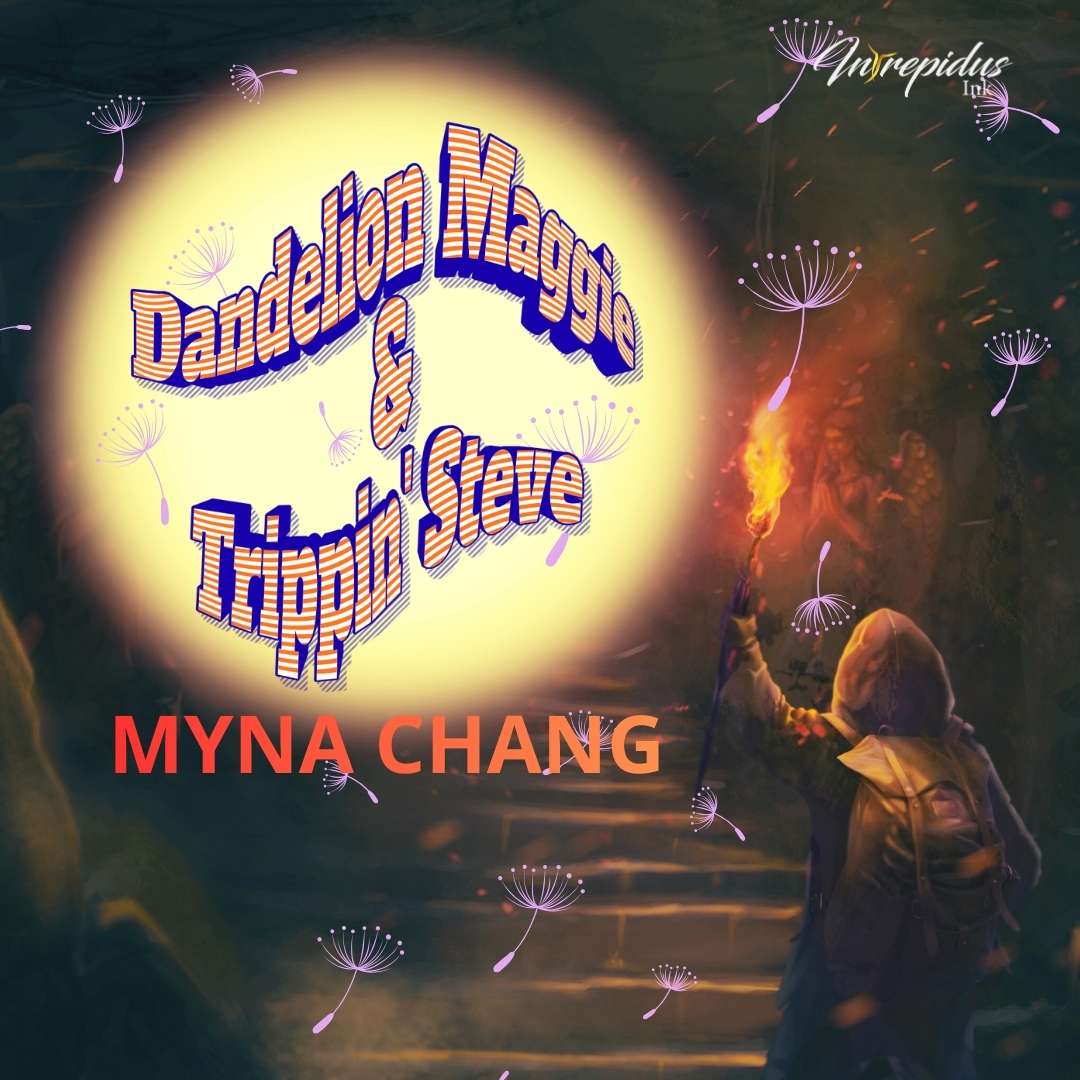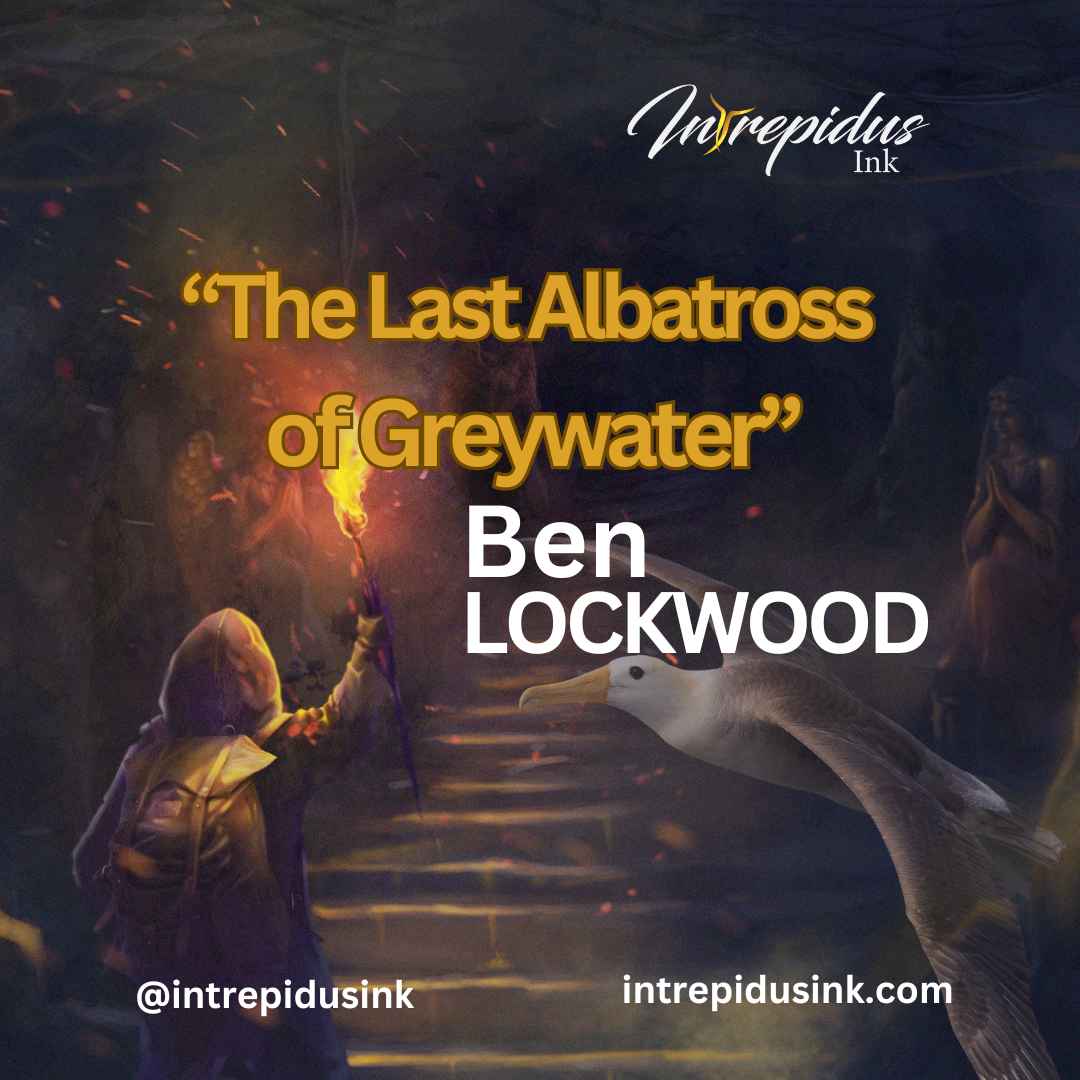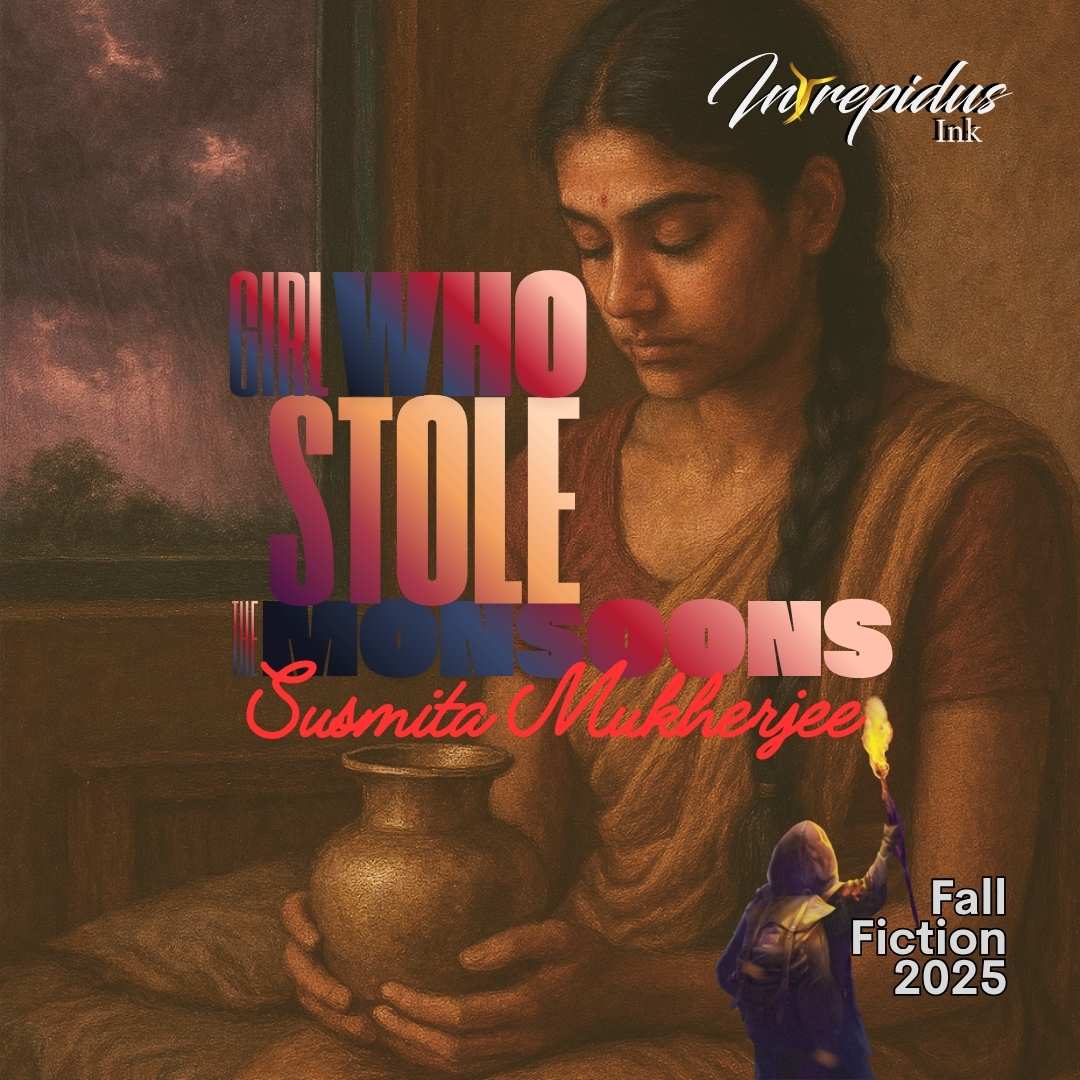

Literary Fiction
Cold winds blow from the north and lift the albatross high over the bay. From below, the cracking of breaking wood follows loud booms of cannon blasts. A great battle is taking place in a war that has been waged for years. Flames erupt from some of the ships, and giant statues of stone wade into the water, smashing hulls with their fists. But all of this is no concern to the albatross because soon it will rejoin its kin, and to it, time only passes with the flock.
The albatross tilts left and heads west, out over the open sea. The cannon fire fades away with the shore, leaving only the rolling ocean and its promise of krill ahead. The albatross has never seen a map, yet it knows where to go. For generations, its forebears have gathered on rocky, moss-covered islands, far from the shores of men, where the waters are still rich with food. Salty sea spray and the smell of history guide the albatross. It knows the route in its bones.
For days, the bird flies, gliding for miles and miles on the northern winds until the misting rains turn to snow, and in the distance, a row of rocks sticks out from the sea. The albatross lets out a loud call at the site of the islands, rejoicing in the anticipation of the gathering after so long away.
As it approaches the islands, though, the albatross does not see its brethren. It circles around the isles, searching, but, except for the small, scraggly plants that grow here, the rocks are bare.
Perhaps it is early. The albatross lands on the northernmost island and looks out over the sea. It can wait. It lifts its wings and preens underneath, smoothing its feathers after miles of flight. Then, it settles into a clump of moss and rests.
The next day, the albatross wakes to waves crashing against the rocks below. A storm has blown in on the water, bringing high winds and more snow. As the water rises, it splashes up in sprays that force the albatross to retake flight, gliding out from the island before circling back. When it tries to land on one of the smaller islands, the winds pick up again and push the bird back out to sea.
The albatross circles wider this time, calling out to its flock, but the cries are drowned out by the wind and thunder of the storm. Sheets of hail batter against its body and wings, and lightning flashes across the sky as a gust of wind rolls it, sending it tumbling toward the rolling ocean. The bird squawks and flaps wildly in the wind, struggling to right itself as it plummets until, at the last moment, its wings catch, and it swoops over the roiling waves. Jaws of a great beast rise out of the water and snap, narrowly missing the albatross as it rides the winds upward, its ruffled feathers flitting in the strong headwinds.
As the storm weakens, the albatross is able to make its way back to the islands. Finding shelter there, but still no others, it lands at the bottom of one of the rocks, on the side most protected from the wind and waves, and there, it tucks its head under one wing and waits out the storm.
In the morning, the seas are calm again. The albatross wakes and stretches, spreading its wings to test the wind before flying out to feed. The storm has stirred up all manner of sea creatures, and the albatross has only to glide down to the surface to snatch up squid and small fish from the water. It doesn’t take long to eat its fill, taking to the skies to search farther north and west for its lost flock but finding nothing. Eventually, it heads back.
The coming days pass much the same. The albatross wakes, flies out to feed, searches, and returns. It walks the islands, pecking at the tiny plants and gazing at the sea, waiting. The days grow colder and shorter as the season nears its end, but no others come.
On a cloudy day when the waters have a different chop to them, a shift in the wind stirs the bird’s instincts. Winds blow from the west, back toward the mainland, and the albatross knows the season has ended. It has spent months here, feeding and squawking and pecking over every inch of rock. Empty or not, the place is something of a home. The bird takes one last look at the islands before spreading its wings and taking flight.
The journey back to shore is slow and solitary. There is no longer a pull toward ancestral lands nor the anticipation of the flock.
When it finally returns to the bay, the albatross finds pieces of wood and cloth sails floating in the water. Much of the debris has washed up on the shore, and the water laps at the beach, knocking wooden planks against the remains of the docks.
The albatross lands on the sand and surveys the area. There are no men here, only the remnants of their last, great battle. With their ships sank whatever magic drove the giant statues. They stand, lifeless, in the bay now, already covered with moss and lichen.
The albatross knows that, like the men, its flock has left these war-torn lands. The water, poisoned with gunpowder and myth, can no longer support such numbers. The albatross also knows they will never return. It will stay, though, watching the pines grow taller, overtaking the castle and its memories. In time, the winds will change again, the remaining wreckage of the ships will fade away, and the albatross will return to the islands to remember.

Interview with Author Ben Lockwood
Intrepidus Ink: This story inspires imagery like that in National Geographic documentaries depicting the animal struggle lifecycle. How have you achieved this effect?
Ben Lockwood: It’s funny you say that, about halfway through writing it, I realized the voice sounded like a David Attenborough narration, which felt like a unique way to approach fantasy, so I just leaned into that. My original thought was to depict a kind of tropey fantasy battle from a bird’s eye perspective, swooping around and seeing different aspects of what was going on. But it felt cliche, even for a flash piece, and there wasn’t much of an actual story. So I decided to explore what would happen if the albatross didn’t stick around for the battle but flew out to sea instead, and then I just followed that thread.
II: Why is emotion important in telling this tale?
BL: I think it’s a bittersweet story. For me, it ends with this feeling of almost nostalgia, of this lost kingdom in the background, paired with the lost flock. There’s all this mythic, epic stuff that gets introduced in the beginning, and then just kind of left to the background, and the focus is on this albatross’s harrowing journey that culminates in a feeling of forgotten time. That’s the emotion I had in mind while I was writing.
II: What’s next for you?
BL: I recently had a weird horror flash piece published in ergot., and I’ve got another one coming in foofaraw soon. I’m working on a non-fiction piece, and a few longer fiction pieces. I’ve also got a couple of things under consideration at various places, so keep your fingers crossed for those.
Author Bio

Ben Lockwood is a writer in central Pennsylvania. Ben’s work has been featured in Clarkesworld Magazine, Seize the Press, Vast Chasm, and others. You can find Ben on Mastodon and Bluesky (fediscience.org/@benlockwood, @benlockwood.bsky.social).

